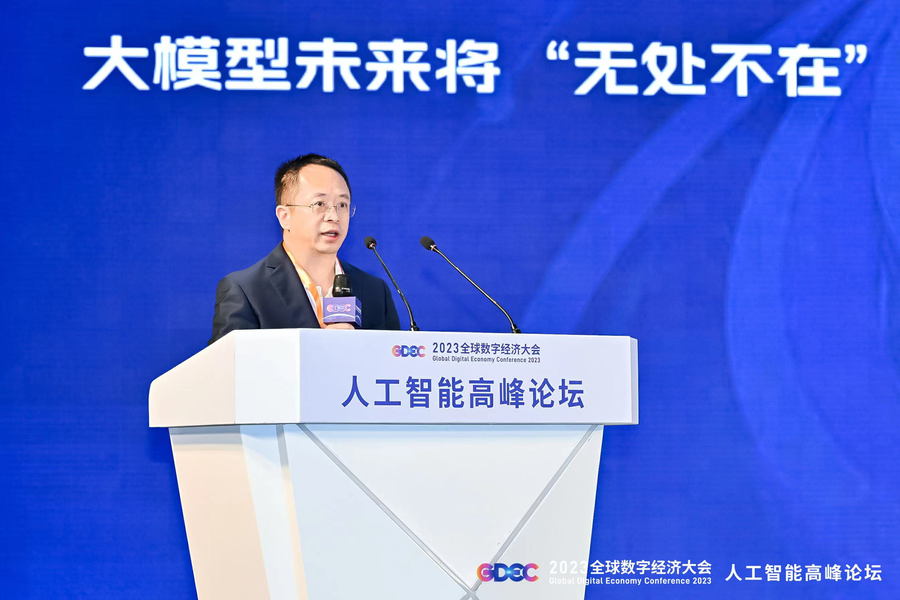
By Greg Gao
(JW Insights) Jul 4 -- Zhou Hongyi, founder of Chinese internet security company 360, pointed out that the large language models(LLMs) are not just a trend or a bubble, the real opportunity lies in the enterprise market.

He made this remark at the AI Summit of the Global Digital Economy Conference 2023 held in Beijing on July 2 in his a keynote speech titled “China Enters the Era of Large Language Models: Future Development Opportunities in the Enterprise Market.”
Over 10 Beijing-based top AI experts and corporate CEOs shared their insights and experience on LLMs at the summit, which was co-organized by JW Insights.
Zhou emphasized that LLMs will genuinely lead a new industrial revolution by directly improving the labor productivity of individuals and organizations while enabling a form of general artificial intelligence.
Moreover, LLMs must be “generalized.” Only when LLMs enter thousands of households and empower various industries and businesses can they truly drive the revolution brought about by artificial intelligence. Additionally, the future trends of LLMs will not be limited to one; they will become as ubiquitous as databases deployed on smartphones, cars, and within enterprises and governments.
It is widely recognized in the industry that the real opportunities for the development of LLMs lie in the enterprise market. However, the deployment of LLMs in enterprise-level scenarios faces several major challenges, said Zhou.
Firstly, it lacks industry depth. Public LLMs are not closely integrated with internal business operations and lack knowledge interchange, thus failing to meet the vertical and professional requirements of enterprise-level applications. Secondly, they pose data security risks. Internal know-how within organizations is not suitable for training in public LLMs, which can easily result in data leaks.
Thirdly, they cannot guarantee trustworthy content, and lastly, the direct training and deployment of LLMs with hundreds of billions of parameters are costly.
In response to the aforementioned challenges, Zhou proposed a holistic approach. They include industrialization, where companies need industry-specific data for deeper insights; enterprise-specific training, which involves leveraging internal expertise to better understand the organization’s needs; verticalization, by utilizing multiple specialized models instead of relying on a single LLM for all tasks; miniaturization, focusing on developing smaller-scale LLMs that offer cost advantages and flexible deployment; and privatization, ensuring security and control through private deployment.
This comprehensive methodology aims to optimize the application of LLMs in enterprise-level scenarios, enabling organizations to leverage their industry knowledge, streamline operations, reduce costs, and enhance data security, according to Zhou.
The development of LLMs must be truly integrated with national strategies. On the one hand, core technologies need to be developed, and on the other hand, various application scenarios need to be explored.
LLMs have great potential in the process of the urban, industry, and enterprise digital transformation to intelligentization. The evolution and iteration of LLM have just begun, and it is believed that they will become a standard feature of digital systems in the future, offering numerous opportunities for B2B, B2G, and SaaS-based enterprises, concluded Zhou.








